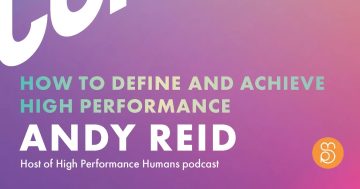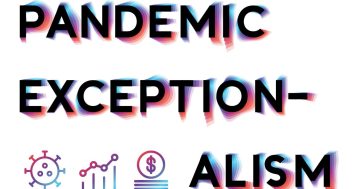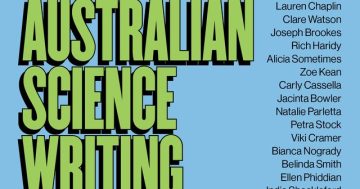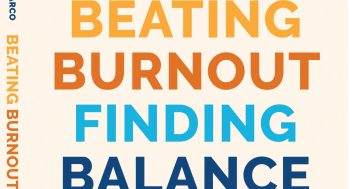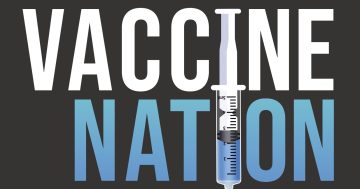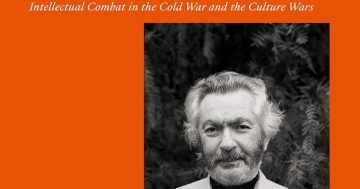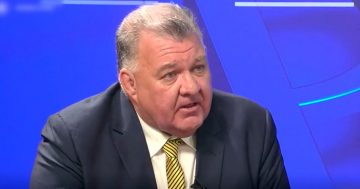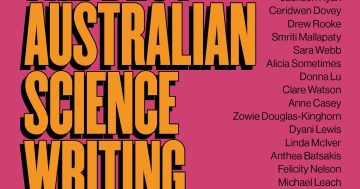Arianna Huffington* reviews the story of the man who masterminded the race to bring a vaccine for COVID-19 to the world in record-breaking time.
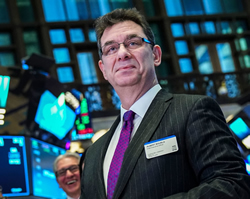 My reading this week consisted of a riveting thriller, a profoundly moving memoir, a fantastic leadership book about business transformation and an inspiring big idea book about what’s possible for the future of humanity.
My reading this week consisted of a riveting thriller, a profoundly moving memoir, a fantastic leadership book about business transformation and an inspiring big idea book about what’s possible for the future of humanity.
No, I didn’t take the week off for a marathon book-reading staycation — it was all the same book.
It was Moonshot: Inside Pfizer’s Nine-Month Race to Make the Impossible Possible, by Chief Executive of Pfizer, Albert Bourla.
The book is a spellbinding insider account of the against-all-odds race to create a COVID-19 vaccine in under a year.
It is also a deeply personal story about Bourla 9pictured), and how his unique life experiences led to his being the right man at the right time.
“I am sharing the story…in hopes that it might inspire and inform your own moonshot, whatever that may be,” he writes.
Bourla describes the vaccine as the result of “the rare combination of brilliant, cutting-edge science powered by the private sector alongside collaborative engagements with Governments”.
What’s clear throughout the book is that his leadership is the result of him being a rare combination: A man passionately committed to science who is always able to see the human element.
It’s a professional and personal story, and Moonshot brings the two strands together in an account of a life-saving vaccine made possible against impossible odds.
Many things in Bourla’s life prepared him to lead his team to success.
First there is his relentless optimism, a perspective on life shaped by the experience of his parents.
“I am an optimist perhaps because my mother’s brave and narrow escape from death, minutes after being lined up against a wall in front of a Nazi firing squad, made me believe that nothing is impossible,” he writes.
“Setting bold goals runs in the family,” he writes, recounting how he would bounce his thoughts off his college-age son, Mois.
Then, at the end of the day, Bourla and his wife would binge-watch Game of Thrones, or the French series, The Bureau.
When he took over Pfizer as Chief Executive in 2018 he made a series of difficult decisions, including restructuring the company to sell off certain divisions, so he could double down on science and innovation.
The move had critics, but he claimed: “We should not aim to be the biggest. We should aim to be the best.”
That’s where things stood when the pandemic hit.
What Bourla calls the most challenging and rewarding nine months of his life began with him acting as project manager, identifying and knocking down silos and obstacles as they came up.
He encouraged everybody to voice their opinions and feedback, positive or negative, but he would be there to make the final decision.
To keep his team focused he repurposed the business maxim of ‘time is money’ to ‘time is life’.
It was that sense of urgency, and the team’s awareness of the real, human, life-or-death stakes involved, that Bourla calls the most important factor in their success.
As unlikely as Pfizer’s vaccine success seemed to the general public simply reading the news about it, it’s even more unlikely when you read the inside account.
There are so many twists and turns, and decisions that only seem obvious in retrospect.
Even after the scientific breakthrough, still looming was the not-small matter of production and distribution of a vaccine that had to be stored and shipped at low temperatures.
“Discovering the vaccine in record time felt like a miracle,” Bourla writes.
“The second miracle would be our ability to quickly manufacture and distribute it at such scale.”
It required swarms of engineers and a lot of cash and leadership, but on day 269, the first shot went in the first arm.
The book is certainly an ode to science, but even more powerful is its insistence that science be coupled with humanity, so that scientific innovation can maximise human benefit.
Science Will Win became the mantra at Pfizer over those nine crucial months.
“I look forward,” Bourla writes, “to the day when schoolchildren are as familiar with the names and faces of our leading scientists as they are with celebrities and sports stars.”
This book is a stirring reminder of what can be achieved when we heed Aristotle’s admonition that Bourla cites in the third chapter:
“Our problem is not that we aim too high and miss, but we aim too low and hit.”
*Arianna Huffington is the founder and Chief Executive of Thrive Global, the founder of The Huffington Post, and the author of 15 books, including, most recently, Thrive and The Sleep Revolution.
This article first appeared at LinkedIn.


